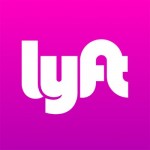With the car exhibition Automobile Barcelona arriving in town, Cabify closing a $100M investment round a few days ago, and Uber awaiting it’s EU fate this week, it’s a good moment to step back and take a look at the major urban transport tech players in the city. Locals, ‘Barcelonian’s by Choice’ and attentive visitors are probably familiar with the uptick of Glovo or Stuart bicycle messengers transporting odd square boxes around the town and white eCooltra scooters swarming the city center everywhere. But what about car-related transport technology? Why is Uber not operating Barcelona? How come there isn’t a Catalan counterpart of Cabify? Who are the main companies behind the innovations in urban automobile transport in Barcelona? Let’s take a closer look:
Transportation network companies
Uber & Lyft

 Nope, neither Uber nor Lyft exist in Barcelona, making it one of a few major cities in Europe where they neither are operating. The reason is most likely that Barcelona has one of the most restrictive transport laws on the continent. It’s strange really, even The Economist has reported on this in their article:”Why cities like Barcelona need Uber”. However, it has to be said that Uber has been banned in other EU countries too and is awaiting the ruling of several legal cases which will determine its future here. Meanwhile it remains to be seen whether the company will continue with its efforts to find a legal way to enter Barcelona somehow, after already failing with UberEATS and seemingly focusing on Madrid instead.
Nope, neither Uber nor Lyft exist in Barcelona, making it one of a few major cities in Europe where they neither are operating. The reason is most likely that Barcelona has one of the most restrictive transport laws on the continent. It’s strange really, even The Economist has reported on this in their article:”Why cities like Barcelona need Uber”. However, it has to be said that Uber has been banned in other EU countries too and is awaiting the ruling of several legal cases which will determine its future here. Meanwhile it remains to be seen whether the company will continue with its efforts to find a legal way to enter Barcelona somehow, after already failing with UberEATS and seemingly focusing on Madrid instead.
Cabify
 The company from Madrid is probably a great example of how a local player can use knowledge of its home turf (or rather home road?) to outperform foreign giants swimming in money. Instead of trying to replicate the Uber business model, Cabify chose a different approach. By focusing on certified drivers that operate under VTC licenses and complying with legal regulations, the company managed to literally bring local taxi drivers on its side (well, maybe not all) and avoid any collision courses with governments. How did this turn out? Well, the company had an incredibly successful start in Barcelona after launching at the end of last year and it now aims to multiply its fleet in Catalonia by five. Oh, and there was also this $100M investment round last week which will now enable them to seriously compete with Uber in Latin America.
The company from Madrid is probably a great example of how a local player can use knowledge of its home turf (or rather home road?) to outperform foreign giants swimming in money. Instead of trying to replicate the Uber business model, Cabify chose a different approach. By focusing on certified drivers that operate under VTC licenses and complying with legal regulations, the company managed to literally bring local taxi drivers on its side (well, maybe not all) and avoid any collision courses with governments. How did this turn out? Well, the company had an incredibly successful start in Barcelona after launching at the end of last year and it now aims to multiply its fleet in Catalonia by five. Oh, and there was also this $100M investment round last week which will now enable them to seriously compete with Uber in Latin America.
Carsharing
Avancar (owned by Zipcar)
 Avancar is a Barcelona-based company founded in 2005. After enjoying great success in the city, it was gradually taken over and finally fully integrated by US firm Zipcar in 2011., although the group decided to keep the brand name Avancar in Spain. It offers a several cars for rental all over the Catalan city and users can obtain them easily via their app. Prices are very transparent as you pay a fixed sum per hour that already includes gasoline, insurance and maintenance.
Avancar is a Barcelona-based company founded in 2005. After enjoying great success in the city, it was gradually taken over and finally fully integrated by US firm Zipcar in 2011., although the group decided to keep the brand name Avancar in Spain. It offers a several cars for rental all over the Catalan city and users can obtain them easily via their app. Prices are very transparent as you pay a fixed sum per hour that already includes gasoline, insurance and maintenance.
SocialCar
 One of the local heroes in carsharing is SocialCar. The firm was established in Barcelona in 2011 and quickly became the leading peer-to-peer carsharing company in Spain with over 150.000 users. In contrast to Zipcar who operates its own car fleet, SocialCar follows an Airbnb-type of business model based on private car owners offering their own vehicles to be rented by other people in exchange for monetary compensation. In 2015 the startup secured a €800k funding round which enabled it to expand into other markets.
One of the local heroes in carsharing is SocialCar. The firm was established in Barcelona in 2011 and quickly became the leading peer-to-peer carsharing company in Spain with over 150.000 users. In contrast to Zipcar who operates its own car fleet, SocialCar follows an Airbnb-type of business model based on private car owners offering their own vehicles to be rented by other people in exchange for monetary compensation. In 2015 the startup secured a €800k funding round which enabled it to expand into other markets.
Drivy
 This startup originating from the French capital follows a similar model as SocialCar. Through its app you can easily list your car for free and rent it out whenever you want. Additionally, all rentals are covered by Allianz insurance. Having raised $8.3M in 2014 and $35M in 2016 and already operating in three major EU countries, France, Germany and Spain, the company seems to stay the biggest competitor of SocialCar.
This startup originating from the French capital follows a similar model as SocialCar. Through its app you can easily list your car for free and rent it out whenever you want. Additionally, all rentals are covered by Allianz insurance. Having raised $8.3M in 2014 and $35M in 2016 and already operating in three major EU countries, France, Germany and Spain, the company seems to stay the biggest competitor of SocialCar.
Amovens
 The Madrid-based startup was launched in 2009 and bets on a holistic approach to beat the competition. Besides offering peer-to-peer car renting, the company also includes ridesharing, leasing and a lease and rent out option into its business model. Already operating in Spain and Denmark, Amovens has big plans for the future as they aim to become profitable this year and expand to ten European countries within the next 3 years.
The Madrid-based startup was launched in 2009 and bets on a holistic approach to beat the competition. Besides offering peer-to-peer car renting, the company also includes ridesharing, leasing and a lease and rent out option into its business model. Already operating in Spain and Denmark, Amovens has big plans for the future as they aim to become profitable this year and expand to ten European countries within the next 3 years.
Bluemove
 Bluemove is another peer-to-peer carsharing marketplace. Even though it was founded in Madrid in 2010, it only rolled out its service in Barcelona in November 2016 which makes it one of the latest movers in the Catalan market. However, having been acquired by the well-known traditional car renting company Europcar Group last summer, Bluemove might have the financial power behind it to seriously threat SocialCar’s leadership status in Barcelona.
Bluemove is another peer-to-peer carsharing marketplace. Even though it was founded in Madrid in 2010, it only rolled out its service in Barcelona in November 2016 which makes it one of the latest movers in the Catalan market. However, having been acquired by the well-known traditional car renting company Europcar Group last summer, Bluemove might have the financial power behind it to seriously threat SocialCar’s leadership status in Barcelona.
Carsharing (operated by automotive companies)
For a long time now, Madrid has been enjoying a clear edge over Barcelona in regards to carsharing services operated by major car companies. As proof, the Spanish capital can easily point to the success of Daimler’s Car2Go (Mercedes, Smart), the recent arrival of PSA’s electric car platform Emov (Peugeot y Citröen), and the new plans of BMW who hope to introduce DriveNow in Madrid soon too. In contrast, Barcelona has yet to feature a carsharing service operated by a multinational automotive company itself. Probably more restrictive regulations, which include the obligation for carsharing companies to pay parking fees in Barcelona, are to blame for that. However, Barcelona might finally start catch up with Madrid soon if the latest reports are believed to be true:
SEAT
 Over the last couple of months SEAT has been featured in the Catalan news almost every week as they seem very bullish about the city of Barcelona. Besides a strong showing at the Mobile World Congress 2017 at the start of the year, the company has announced multiple exciting plans involving the tech and startup community in Catalonia. They can basically be divided in the following three categories:
Over the last couple of months SEAT has been featured in the Catalan news almost every week as they seem very bullish about the city of Barcelona. Besides a strong showing at the Mobile World Congress 2017 at the start of the year, the company has announced multiple exciting plans involving the tech and startup community in Catalonia. They can basically be divided in the following three categories:
Metropolis: Lab Barcelona
The company has opened an innovation lab located in Pier01, headquarters of the Barcelona Tech City. It is the Volkswagen Group’s sixth international research centre in the world. 23 specialists are scheduled to work there in the first year and the number will grow to 50 in the future. They will be developing software and algorithms related to mobility services with the objective to create easier, safer and more efficient relations between people and vehicles in urban environments.
SEAT in Barcelona’s Tech & Startup Ecosystem
Besides opening the innovation lab, SEAT has been very active in Barcelona’s tech and startup ecosystem recently. They participated in major fairs such as the MWC17, 4YFN and YoMo (Youth Mobile Festival). Of course, they are also exhibiting at Automobile Barcelona this May. On top of that, they also feature the SEAT Accelerator by Conector program which is aimed at automobile startups and where there are already six startups working on projects to shape the future of the automobile industry.
Carsharing in Barcelona
During the MWC17 the company has announced the launch of a carsharing pilot project in Barcelona. It will feature 10 SEAT eMii units, their electric prototype was presented at the MWC17, in Pier01 of Barcelona Tech City.
Car2Go
 SEAT is not the only automobile manufacturer that considers starting a carsharing service in Barcelona. After enjoying great success in Madrid and other European cities, Daimler’s Car2Go is looking to enter the Catalan market in the future too. Although a final decision has yet to be made by the German conglomerate, this is good news for Barcelona as every carsharing competitor would be welcome in order to close the gap to Madrid quickly.
SEAT is not the only automobile manufacturer that considers starting a carsharing service in Barcelona. After enjoying great success in Madrid and other European cities, Daimler’s Car2Go is looking to enter the Catalan market in the future too. Although a final decision has yet to be made by the German conglomerate, this is good news for Barcelona as every carsharing competitor would be welcome in order to close the gap to Madrid quickly.
Conclusion
It is certainly interesting to observe how regional laws and regulations can lead to different roads of innovation. Madrid’s more favourable legal framework has allowed major car manufacturers to enter the city’s carsharing industry and it also enabled Cabify to emerge as a legit contender to Uber and Lyft. In the east of Spain, Barcelona-based startups are forced to focus on other solutions and they achieved great success with peer-to-peer car renting platforms and moto sharing networks such as Catalan groups eCooltra, YUGO and Motit.
Time will tell which path is more successful, but one thing is sure: the revolution of the personal transport industry in Barcelona is under way and it’s here to stay, whether taxi drivers like it or not. You can set Cabify cars on fire or try to block Uber from entering the market, but ultimately, innovation will win unless you start to reinvent your business model.







My congratulations, Clemens. A great view of the transport innovation landscape.
But I’m afraid that something different is required to solve people’s true transportation problems.
People’s real transportation problems are threefold:
1.- For many people, public transport is too much time consuming
2.- Going by it’s own car takes less time, but it’s 5 times more expensive, and
3.- It creates traffic congestions at peak hour, parking problems and excessive air pollution.
Neither a car rental nor a taxi (whether it’s a traditional one, or an app/platform based) will never solve those city problems.
Instead, I believe what people in Barcelona (or any other city) need, is a peer-to-peer ridesharing marketplace.
Why?
Because just at peak hour (when everybody need to go to work, or back home, and there aren’t enough transportation means available) our cars are wasting millions of empty seats every day. Currently, our 5 seats car occupancy is as low as 1.1 people per car. This so low efficiency is both a big problem and a great opportunity to improve.
If we could only do for our city commutes what BlablaCar already does for intercity travels, we will get rid of those problems. By harnessing the empty car seats:
• Passengers will go with the quickness and comfort of a chauffeur-driven car, but at bus cost.
• Drivers will be reimbursed by passengers with up to 75% of their travel expenses (the more people in the car, the better for all of them, because travel costs are divided among a bigger number or travellers).
In Madrid based DedoCar, we are developing an urban hitchhiking app that finds in real time the people going in the same direction, so they car benefit from sharing their rides in a single car.
Please see https://DedoCar.com . We will appreciate your comments.